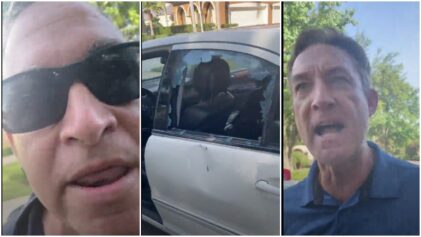With the announcement that the Justice Department will not file federal civil rights charges against George Zimmerman for the 2012 death of 17-year-old Trayvon Martin, the department has proven once again that the Black community has very little reason to place any confidence in the American law enforcement apparatus.
Though it’s fair to say that most African-Americans had long ago abandoned any hope that the Justice Department would come to the rescue and find a way to send Zimmerman to jail, some of the recent rhetoric of Attorney General Eric Holder allowed just a sliver of hope to surface that maybe Justice had some surprises in store.
But that was not to be the case. Federal prosecutors concluded there was not sufficient evidence to prove Zimmerman, the Sanford neighborhood watchman intentionally violated Martin’s civil rights on that fateful night almost exactly three years ago.
The department issued a statement saying it had met with Martin’s family to inform them that the department was closing the case. In the statement, Holder said that while the standard for a federal hate crime prosecution could not be met, the shooting still requires the country to confront the “issues and tensions” brought to the surface by the killing.
“We, as a nation, must take concrete steps to ensure that such incidents do not occur in the future,” he said.
The Zimmerman case, like the OJ Simpson verdict two decades earlier, had the effect of a Rorschach ink blot test given to the entire nation, showing there was still an enormous schism in the views on race between white and Black Americans—particularly related to the threat posed by an average Black teenage male. After Zimmerman was acquitted of second-degree murder and all other charges, the case drew impassioned commentaries from coast to coast and initiated a period of intense social protest that grew even angrier after the Eric Garner and Michael Brown murders.
Federal investigators reviewed all the evidence from Zimmerman’s prosecution in Florida, conducted 75 witness interviews of their own and reviewed electronic records, according to the Justice Department, in addition to retaining a biomechanical expert to go over Zimmerman’s descriptions of the struggle and the shooting, the statement said.
The case serves as a visceral reminder to African-Americans that it can be foolhardy to place too great an expectation of justice on a federal government that has often been a primary player in the subjugation and large-scale incarceration of the African-American community.
In the important report on the history of lynching, called “Lynching in America: Confronting the Legacy of Racial Terror,” released earlier this month by the Alabama-based Equal Justice Initiative, the group reminded readers that the federal government also stood idly by early in the last century and did nothing as thousands of Black people were lynched throughout the country and particularly in the South.
“The United States government compounded the psychological harm experienced by African Americans by permitting the torture and murder of black citizens. Federal and state officials’ inaction communicated that no democratic institution valued black citizens’ lives enough to protect them against terrorism by local and private citizens alike,” the Equal Justice Initiative wrote in the report.
“They had to have a license to kill anything but a nigger,” explained one African-American man in the Mississippi Delta. “We was always in season.”
And in a direct reference to the circumstances that moved Zimmerman to act against Martin, the report noted that lynching “directly fostered the racialization of criminality.”
“Whites defended vigilante violence aimed at black people as a necessary tactic of self-preservation to protect property, families, and the Southern way of life from dangerous black criminals,” the report said.
So as the Black community continues to hold out hope every time a Black person is murdered at the hands of law enforcement that perhaps the Feds will do something this time, or that maybe appointing a special prosecutor will be the panacea the community has been waiting for, the community would do well to remember days like these.


